The annual election to the Labour Party's Shadow Cabinet (more formally, its "Parliamentary Committee") was conducted in 1987. [1] In addition to the 16 members elected, the Leader (Neil Kinnock), Deputy Leader (Roy Hattersley), Labour Chief Whip (Derek Foster), Labour Leader in the House of Lords (Cledwyn Hughes), and Chairman of the Parliamentary Labour Party (Stanley Orme) were automatically members.
The Labour Party is a centre-left political party in the United Kingdom that has been described as an alliance of social democrats, democratic socialists and trade unionists. The party's platform emphasises greater state intervention, social justice and strengthening workers' rights.

The Official Opposition Shadow Cabinet is, in British parliamentary practice, senior members of Her Majesty's Loyal Opposition who scrutinise their corresponding Government ministers, develop alternative policies, and hold the Government to account for its actions and responses. Since May 2010, the Labour Party has been Her Majesty's Loyal Opposition, and its leadership therefore forms the current Shadow Cabinet.

Neil Gordon Kinnock, Baron Kinnock, is a British Labour Party politician. He served as a Member of Parliament from 1970 until 1995, first for Bedwellty and then for Islwyn. He was the Leader of the Labour Party and Leader of the Opposition from 1983 until 1992.
Following the 1987 general election, there were significant changes to the cabinet. Barry Jones, Peter Shore, Peter Archer and Giles Radice lost their seats, and other familiar faces such as Denis Healey did not stand. Michael Meacher, Robert Hughest, Robin Cook, Frank Dobson, Gordon Brown, Jo Richardson and Jack Straw gained seats.
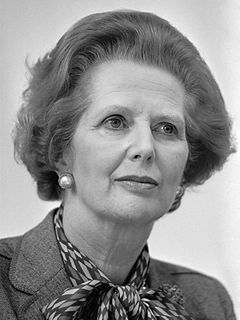
The 1987 United Kingdom general election was held on Thursday, 11 June 1987, to elect 650 members to the House of Commons of the United Kingdom. The election was the third consecutive general election victory for the Conservative Party, and second landslide under the leadership of Margaret Thatcher, who became the first Prime Minister since the Earl of Liverpool in 1820 to lead a party into three successive electoral victories.

The politics of Malta takes place within a framework of a parliamentary representative democratic republic, whereby the President of Malta is the constitutional head of state. Executive Authority is vested in the President of Malta with the general direction and control of the Government of Malta remaining with the Prime Minister of Malta who is the head of government and the cabinet. Legislative power is vested in the Parliament of Malta which consists of the President of Malta and the unicameral House of Representatives of Malta with the Speaker presiding officer of the legislative body. Judicial power remains with the Chief Justice and the Judiciary of Malta. Since Independence, the party electoral system has been dominated by the Christian democratic Nationalist Party and the social democratic Labour Party.

Politics of Saint Lucia takes place in the framework of an independent parliamentary democratic constitutional monarchy, with Queen Elizabeth II as its head of state, represented by a Governor General, who acts on the advice of the prime minister and the cabinet. The prime minister is the leader of the majority party of the house, and the cabinet conducts affairs of state. The Governor General exercises basically ceremonial functions, but residual powers, under the constitution, can be used at the governor general's discretion. The actual power in St. Lucia lies with the prime minister and the cabinet, usually representing the majority party in parliament.

The People's Party for Freedom and Democracy is a conservative-liberal political party in the Netherlands.
The Labour Party is a social-democratic political party in the Netherlands.
The politics of Norway take place in the framework of a parliamentary representative democratic constitutional monarchy. Executive power is exercised by the Council of State, the cabinet, led by the Prime Minister of Norway. Legislative power is vested in both the government and the legislature, the Storting, elected within a multi-party system. The judiciary is independent of the executive branch and the legislature.

Jan Pieter "Jan Peter" Balkenende Jr. is a retired Dutch politician of the Christian Democratic Appeal (CDA) party and jurist who served as Prime Minister of the Netherlands from 22 July 2002 to 14 October 2010.
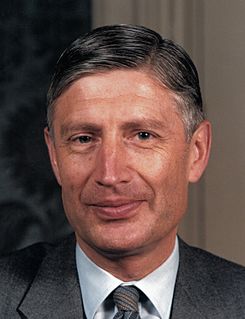
Andreas Antonius Maria "Dries" van Agt is a retired Dutch politician and diplomat of the Christian Democratic Appeal (CDA) party and jurist who served as Prime Minister of the Netherlands from 19 December 1977 until 4 November 1982.
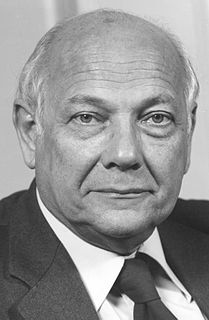
Johannes Marten den Uijl, better known as Joop den Uyl was a Dutch politician of the Labour Party (PvdA) and economist who served as Prime Minister of the Netherlands from 11 May 1973 until 19 December 1977.
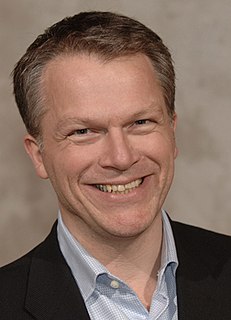
Wouter Jacob Bos (Dutch pronunciation: [ˈʋʌutər ˈbɔs]; is a retired Dutch politician of the Labour Party and businessman. He is the CEO and Chairman of the Dutch Invest Agency since 1 October 2018
A minority government, minority cabinet or minority parliament is a cabinet formed in a parliamentary system when a political party or coalition of parties does not have a majority of overall seats in the parliament. It is sworn into office, with or without the formal support of other parties, to enable a government to be formed. Under such a government, legislation can only be passed with the support of enough other members of the legislature to provide a majority, encouraging multi-partisanship. In bicameral parliaments, the term relates to the situation in chamber whose confidence is considered most crucial to the continuance in office of the government.
The Socialist Campaign Group of Labour MPs, often known as the Campaign Group, is a left-wing, democratic socialist grouping of Labour Party Members of Parliament in the House of Commons of the United Kingdom. It was formed in December 1982 as an alternative Parliamentary left-wing group to the Tribune Group. The Campaign Group, as it is commonly known, is often considered on the hard left of the Labour Party and has been highly critical of New Labour.

The 1990 New Zealand general election was held on 27 October to determine the composition of the 43rd New Zealand parliament. The governing Labour Party was defeated, ending its controversial two terms in office. The National Party, led by Jim Bolger, won a landslide victory and formed the new government.
The Militant Socialist Movement is a centre-left political party in Mauritius that adheres to the philosophies of socialism and political democracy. It is the largest single political party in the National Assembly of Mauritius, winning 34 of the 69 seats in the 2014 general elections. With political development, 6 MPs from the opposition joined officially the party making the current majority at 40. It also holds the largest number of seats in all city/town councils through the country with 60 councilors out of 120.

Anne Vondeling was a Dutch politician of the Labour Party (PvdA) and agronomist.
Elections to the Labour Party's Shadow Cabinet took place on 4 December 1980, having been delayed due to the October election of new Party Leader Michael Foot. In addition to the 12 members elected, the Leader (Foot), Deputy Leader, Labour Chief Whip, Labour Leader in the House of Lords, and Chairman of the Parliamentary Labour Party were automatically members.
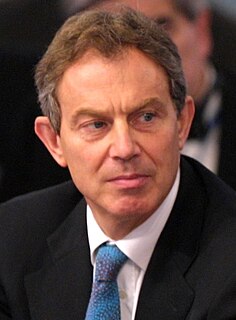
Tony Blair originally formed the Blair ministry in May 1997 after being invited by Queen Elizabeth II to form a new government following the resignation of the previous Prime Minister, John Major of the Conservative Party, as a result of the Labour Party's landslide victory at the 1997 general election. He would serve as the Prime Minister for three successive ministries and parliamentary terms until his resignation on 27 June 2007. His Cabinet was reshuffled for each new parliament along with a few minor changes during each term.
Elections to the Labour Party's Shadow Cabinet took place on 24 October 1990. Under the rules then in effect, the Commons members of the Parliamentary Labour Party elected 18 members of the Official Opposition Shadow Cabinet, who were then assigned portfolios by the leader. The Commons members of the PLP separately elected the Chief Whip, and the Labour peers elected the Leader of the Opposition in the House of Lords. In addition, the Leader of the Labour Party and Deputy Leader were members by virtue of those offices.
Elections to the Labour Party's Shadow Cabinet occurred in 1953. In addition to the 12 members elected, the Leader, Deputy Leader, Labour Chief Whip, Labour Leader in the House of Lords were automatically members. All incumbent members of the Shadow Cabinet retained their seats.
Elections to the Labour Party's Shadow Cabinet occurred in November 1989. For these elections the Shadow Cabinet was expanded from 15 to 18 seats and, for the first time, MPs had to cast at least three votes for women.
Elections to the Labour Party's Shadow Cabinet occurred in November 1972. In addition to the 12 members elected, the Leader, Deputy Leader, Labour Chief Whip, Chairman of the Parliamentary Labour Party, Labour Leader in the House of Lords, and Labour Chief Whip in the Lords were automatically members. The Labour Lords elected one further member, Baron Champion.














